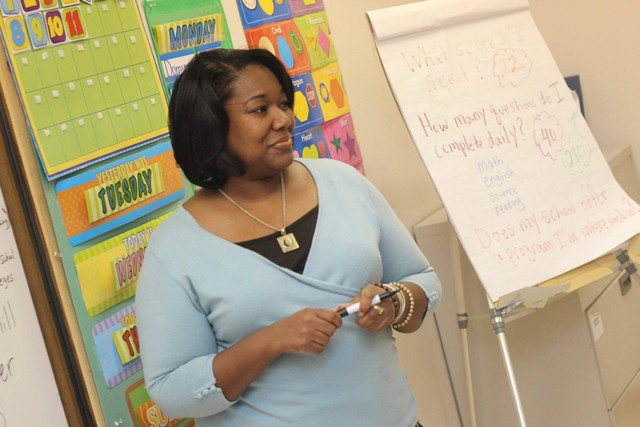Tentang KamiPedoman Media SiberKetentuan & Kebijakan PrivasiPanduan KomunitasPeringkat PenulisCara Menulis di kumparanInformasi Kerja SamaBantuanIklanKarir
2025 © PT Dynamo Media Network
Version 1.96.0
Konten dari Pengguna
Teaching Early Childhood Needs a High Concentration
3 Mei 2023 17:43 WIB
Tulisan dari Syahla Nur Azizah tidak mewakili pandangan dari redaksi kumparan

ADVERTISEMENT
Teaching early childhood is an important and challenging task that requires a high level of concentration. Early childhood is a critical time in a child’s development, and the experiences they have during this period can significantly shape their future. Teachers of early childhood need to have a deep understanding of children’s needs and abilities, as well as the theories and research that inform best practices in early childhood education. Concentration is essential for creating developmentally appropriate learning experiences, building strong relationships with children, and ensuring a safe and supportive learning environment.Teaching early childhood also requires a high level of concentration because young children require a lot of supervision and support. Teachers need to be constantly aware of what is happening in the classroom and be able to intervene quickly if necessary. They must also be able to multitask, as they may need to manage several different activities or groups of children at once. This requires a high level of concentration and the ability to maintain focus in a busy and sometimes chaotic environment.
ADVERTISEMENT
One of the primary reasons that teaching early childhood requires a high level of concentration is that young children have short attention spans. Teachers need to be able to create activities and lessons that capture children’s interest and hold their attention. This requires careful planning and preparation, as well as the ability to adapt quickly to changes in children’s needs and interests. When teachers are concentrated and fully present in the moment, they can respond to children’s cues and adjust their teaching accordingly.
Another reason that teaching early childhood requires a high level of concentration is that young children are very perceptive. They pick up on subtle cues and can quickly sense when a teacher is not fully engaged. When a teacher is distracted or not fully present, children may become disengaged or lose interest in the lesson. By contrast, when teachers are concentrated and fully engaged, they can build strong relationships with children, create a positive learning environment, and foster a love of learning.
ADVERTISEMENT
Concentration is also essential for creating a safe and supportive learning environment. Young children need a sense of security and predictability to feel safe and comfortable in the classroom. When teachers are concentrated and fully present, they can create routines and structure that provide children with a sense of predictability and stability. This, in turn, helps children feel more secure and better able to focus on learning.
In addition to these reasons, teaching early childhood requires a high level of concentration because it can be emotionally demanding. Early childhood teachers often work with children who are experiencing a range of emotions, from excitement and joy to frustration and sadness. Teachers need to be able to respond sensitively and appropriately to children’s emotions while maintaining a sense of calm and control. This requires a high level of concentration, self-awareness, and emotional regulation.
ADVERTISEMENT
Teaching early childhood requires a high level of concentration. Teachers who are fully present and engaged can create developmentally appropriate learning experiences, build strong relationships with children, create a safe and supportive learning environment, and respond sensitively to children’s emotional needs. Concentration is a crucial skill for early childhood teachers, and it can be developed through practice, mindfulness, and self-reflection. When teachers are concentrated, they can make a significant difference in the lives of young children and set them on a path towards lifelong learning and success.

